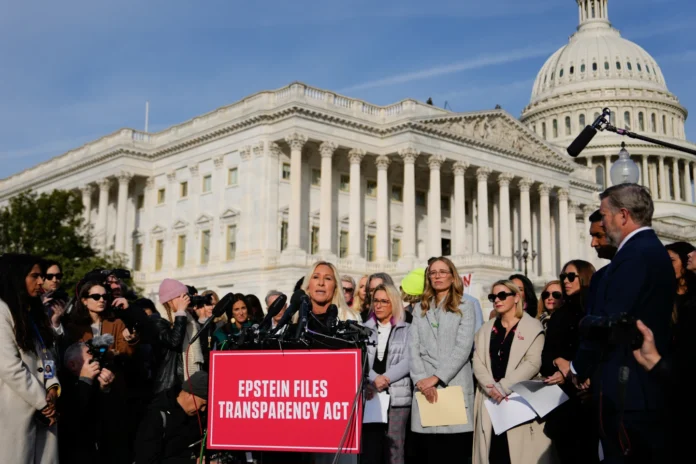In a near-unanimous display of political will, the United States Congress has passed legislation compelling the full disclosure of all unclassified Justice Department files concerning the late financier and convicted sex offender Jeffrey Epstein.
The bill, known as the Epstein Files Transparency Act, was approved by the House of Representatives in a 427-1 vote on Tuesday, November 18, and swiftly passed by the Senate through unanimous consent the following day, before being signed into law by President Donald Trump on Wednesday, November 19, 2025.
The legislative action mandates the DOJ to release “all unclassified records, documents, communications and investigative materials” related to its investigations into Epstein, whose death in a federal jail in 2019 left numerous questions about his extensive network of associates unanswered.
The move represents a significant victory for victims’ rights groups and journalists who have long campaigned for greater transparency. Senate Minority Leader Chuck Schumer, who brought the measure to the Senate floor, stated, “This is about giving the American people the transparency they’ve been crying for.”
The bipartisan nature of the vote, however, belies a complex political undercurrent. While the passage of the bill was widely celebrated, President Trump’s endorsement and subsequent signing have been met with scrutiny. A senior Democratic congressman noted, “This is a victory for transparency and for the victims who have fought for years to be heard.
However, given the former president’s own past association with Epstein, his sudden zeal for disclosure warrants a healthy degree of scepticism regarding the political motivations at play.” This sentiment echoes the views of many observers who question the timing and intent behind the administration’s support.
For the survivors of Epstein’s abuse, the new law is a monumental step towards accountability. A lawyer representing several of the victims emphasized that the significance is profoundly personal.
“For my clients, this is not about politics. It is about validation and justice. These documents may finally expose the powerful enablers who operated with impunity,” the lawyer said. The impending document release is anticipated to contain more than a thousand pages, potentially naming influential figures in business, politics, and academia, and could force a public reckoning years after the initial scandal.
The Department of Justice now faces the operational challenge of collating and redacting the vast trove of documents to protect sensitive personal information before their publication.
The world will be watching closely when the files are eventually released, an event that is almost certain to trigger a media firestorm and potentially reshape the public’s understanding of one of the most notorious criminal cases of the modern era. The true impact of this legislative push will be measured by the revelations contained within those pages and the accountability they ultimately deliver.
By Were Kelly



















